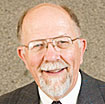Commentary on 1 Samuel 17:[1a, 4-11, 19-23] 32-49
The lectionary’s desire to include the story of David and Goliath in the Sunday lessons is made difficult by the length of the story in the Bible.
The Septuagint itself does not contain verses 12-31, 41, 48b, part of 51, and 55-58. That shorter version is probably more original, although the omission of 41, 48b and part of 51 may be accidental.
This chapter seems to be unaware that David had been anointed by Samuel and presents David as a mere boy who could not function as a soldier. In contrast, in 16:18 and 21, he is called a man of war and was Saul’s weapon-carrier. Later, in 2 Samuel 21:19, we are told that Elhanan killed Goliath, perhaps indicating that this feat of a minor figure from Bethlehem was later ascribed to David (see also 1 Chronicles 20:5).
The idea that a combat between two champions could decide a battle is well known in ancient sources. Goliath was 9′ 9″ tall and extremely well armed (his armor would have weighed about 125 pounds). David shows up at the battle to bring provisions to his brothers. Eliab, David’s older brother, even scolds him for neglecting his duties with the sheep and for daring to take on Goliath.
David had been told that whoever defeated Goliath would be given the king’s daughter as a wife. When David is later offered Saul’s daughters Merab (1 Samuel 18:17-19) and Michal (1 Samuel 18:20-27), it is not as a reward for killing Goliath but as a ruse to catch him in a Philistine trap.
Eventually David is introduced to Saul, who also casts doubt on David’s ability to fight. David cited his earlier exploits against a lion or a bear that had threatened his flock. If he could handle lions and bears, he could also handle this blasphemous Philistine. David acknowledged that it was Yahweh who had given him those victories and would help him in the contest with Goliath.
Saul was convinced by David’s speech and outfitted David with his own light armor and weapons. However, these were too heavy for David and reflected Saul’s mistaken idea that Goliath could be defeated by mere human strength.
So David went out, relatively unarmed, accompanied only by a shepherd’s staff, a slingshot, and five smooth stones. A slingshot is a shepherd’s weapon but was also used by ancient armies with amazing accuracy (see Judges 20:16).
Goliath disdained David with all sorts of trash talk, but David put his trust in Yahweh of the heavenly armies (hosts), the God of the armies of Israel. It was Yahweh who would defeat Goliath, enabling David to cut off Goliath’s head and feed the dead Philistine soldiers to wild animals. The Bible consistently minimizes the importance of military weapons and emphasizes their relative uselessness in warfare. Yahweh laughs at enemies who put their trust in weapons (see Psalm 2:4).
With one excellent shot, David (with Yahweh’s help) found the weakness in Saul’s armor and sank a stone in his forehead.
The lectionary leaves out verses 50-51 which report that David grabbed Goliath’s sword (cf. 1 Samuel 21:9, where David picked up Goliath’s sword from the priests of Nob during his later battles with Saul) and cut off Goliath’s head. Still later, David took Goliath’s head to Jerusalem (1 Samuel 17:54) and took it in hand to show King Saul (1 Samuel 17:57).
The story of David and Goliath is a classic example of what can be accomplished through a person of faith. Ben Sira commented: “David played with lions as though they were young goats, and with bears as though they were lambs of the flock. In his youth did he not kill a giant, and take away the people’s disgrace, when he whirled the stone in the sling and struck down the boasting Goliath? For he called on the LORD, the Most High, and he gave strength to his right arm to strike down a mighty warrior and to exalt the power of his people” (Sirach 47:3-5).
The Gospel for this day, Mark 4:35-41, also places the emphasis on faith or trust. Jesus took a nap when a storm arose on the Sea of Galilee, but the terror-stricken disciples woke him up and asked, “Don’t you care that we are perishing?” After stilling the storm, Jesus asked them [and us], “Why are you afraid? Have you still no faith?”
The promise to us, made in the life, death, and resurrection of Jesus, empowers us to do great deeds or to accept that promise in quiet trust, making us unafraid of giants, gigantic tasks, or the storms and other challenges of life.

June 21, 2009